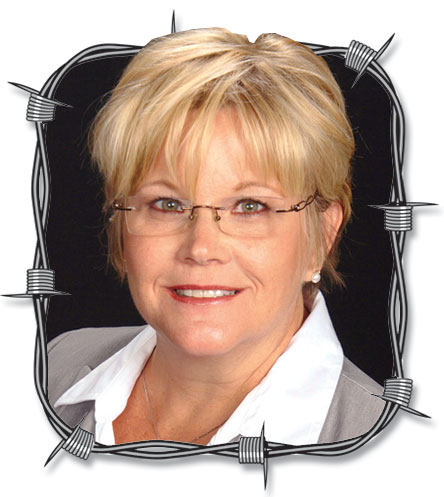For many of us, New Year’s resolutions are an annual tradition. And whether we resolve to replace the roof on that old barn or buy that new bush hog, our intentions are good. The challenge lies not in making the resolution but in following through. And though following through is easier said than done, it’s what makes a resolution become a reality. This is also true with our financial resolutions.
“When making financial resolutions, it is important to be realistic about what you can achieve and then be prepared to put your plan into action,” said Mark Foster, Director of Education for Credit Counseling of Arkansas (CCOA). “After you determine your goals for the coming year, write them down and post them in a visible area so you will be reminded of what you are working for.”
Foster added that it is important to be specific when making your goals. For example, if your goal is to save money for retirement, write down a specific amount you need to save in a specific period of time.
Saving for retirement is certainly a worthwhile goal, but you may have a different one in mind. Foster said that financial resolutions are up to the individual, but pointed to three of the most common goals and the steps required to achieve them.
1. Become organized. Many of us keep financial paperwork stuffed in a shoebox or crammed in a desk drawer with no semblance of order. But with a few folders and an inexpensive, locking file cabinet, you can become a model of organization. This will enable you to categorize bills to pay, bank statements, tax information, medical and insurance records, and receipts for large purchases. Also remember to properly shred sensitive documents when you no longer need them. This will help reduce the chances of identity theft. Becoming organized also includes proper budgeting. Make sure you maintain a comprehensive and realistic budget, and develop the discipline to stick to it. No business has ever achieved its financial goals without a budget, and few families have either.
2. Get out of debt. Start this process by taking inventory of your credit card balances, the interest rate on each account, and the minimum monthly payment. Pay off the credit cards with the highest interest rate so that you will not pay as much in interest over time. It also never hurts to consult a professional. Non-profit credit counseling agencies offer free budgeting sessions, and their debt management plans often feature the elimination of late and over-the-limit fees and lower interest rates if the program is right for you. Just make sure the organization you consult is in good standing with the Better Business Bureau and its counselors are certified professionals.
3. Start saving. This is the key to buying a home, having enough income for retirement, giving more to charity, or just being prepared for those unexpected expenses that invariably arise. The extent to which you can save depends on your individual situation, but Foster recommends you strive to save 10 percent of your net income (AKA “take-home pay”) each pay period. Furthermore, putting savings at the top of your budget makes it a priority instead of an afterthought.
So, right up there with exercising and being more charitable, resolve to become a more effective money manager this New Year. Just keep in mind that utilizing organization and discipline will be required to turn that resolve into a reality.





